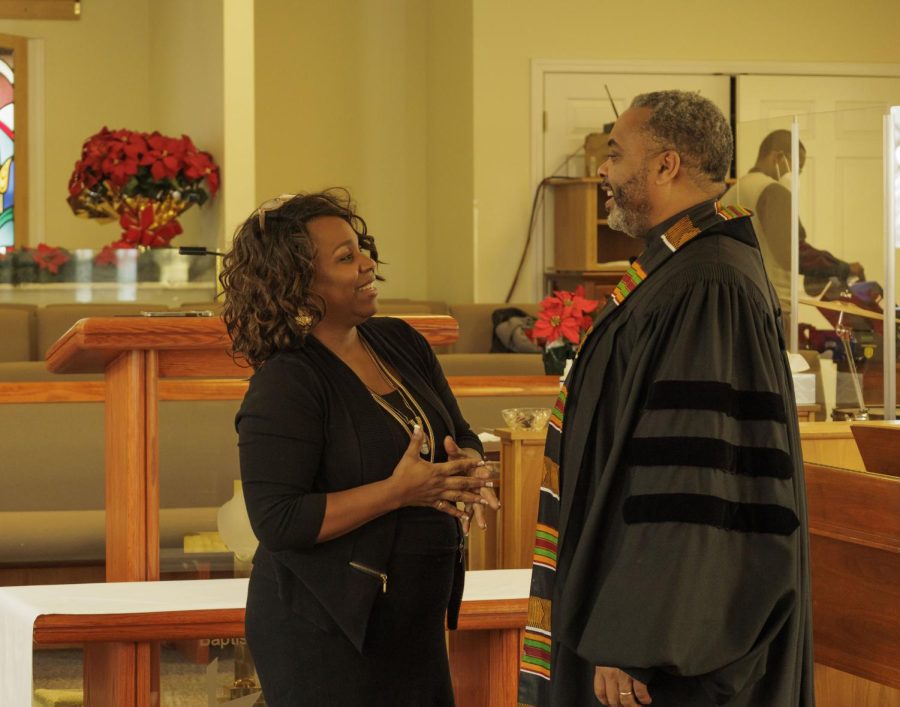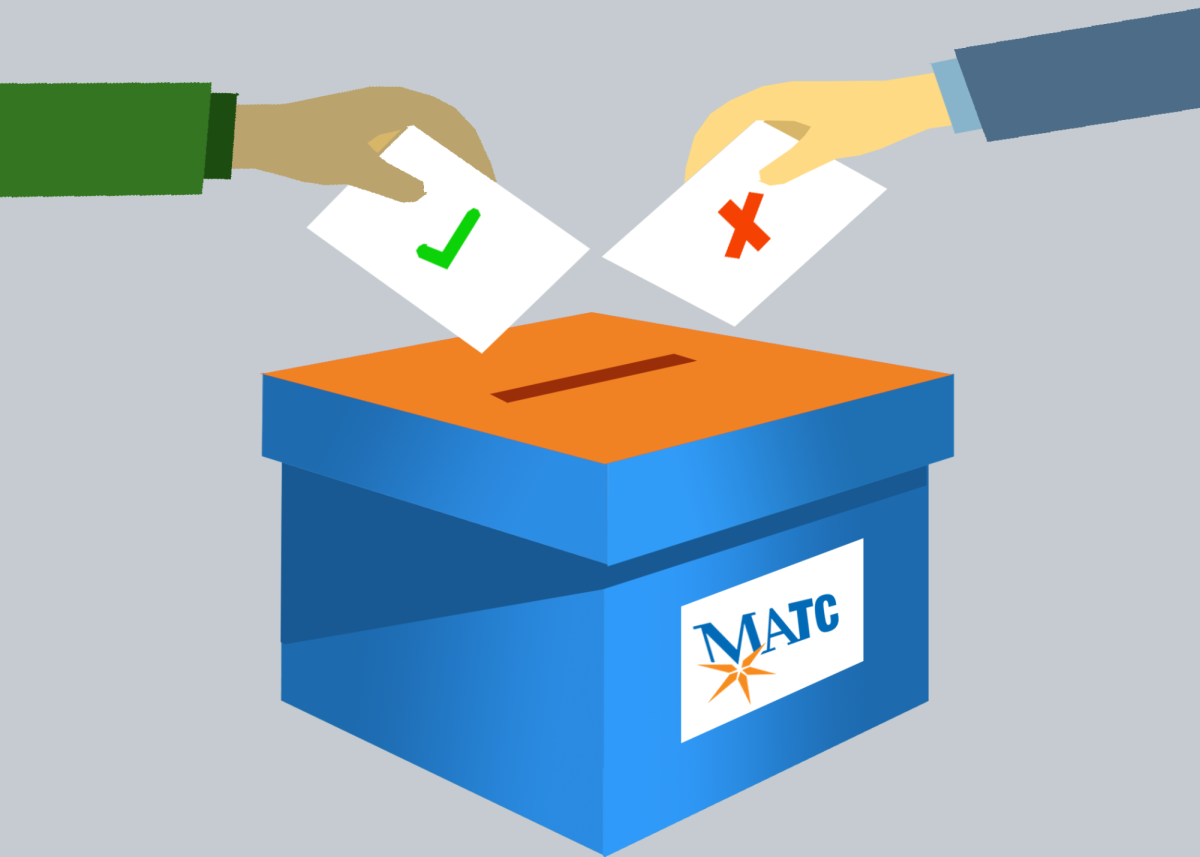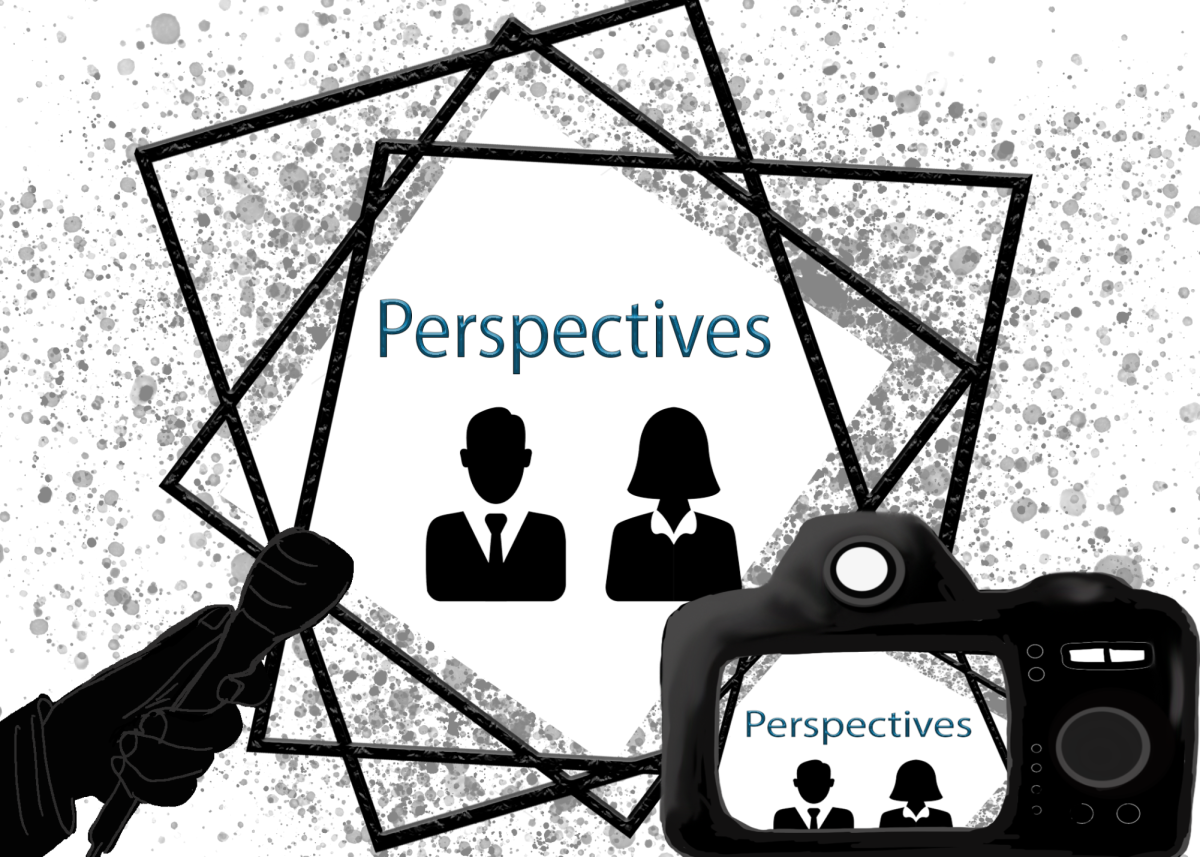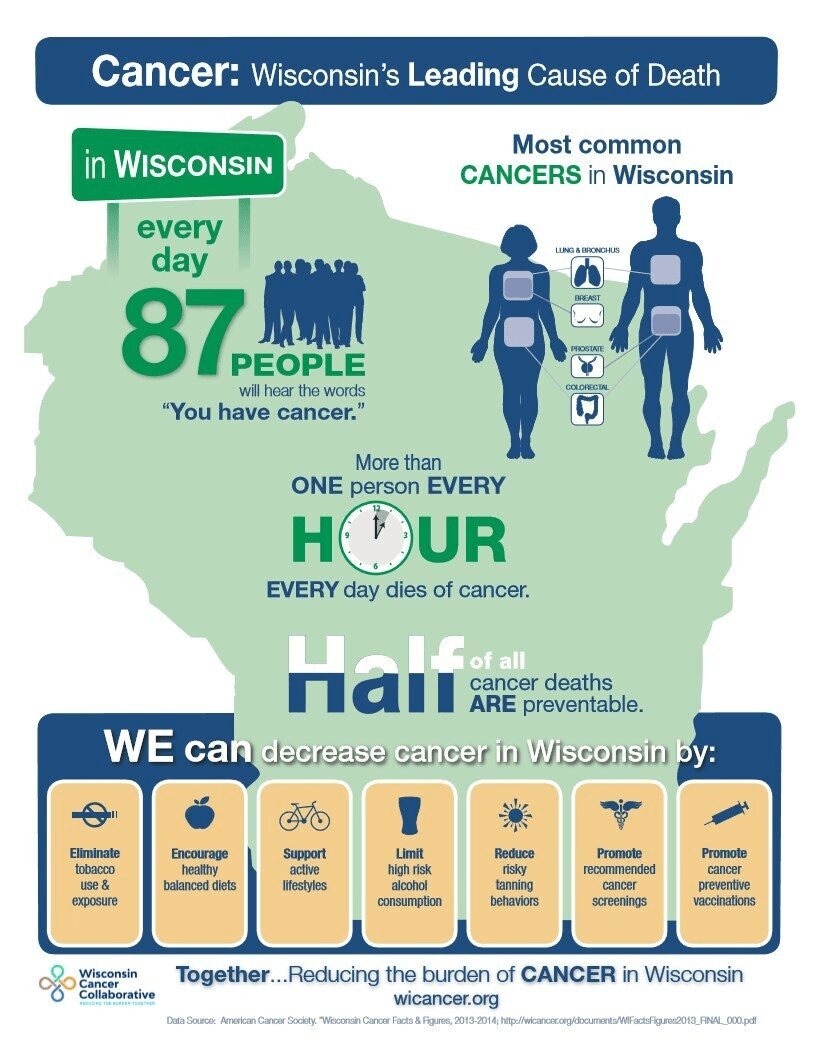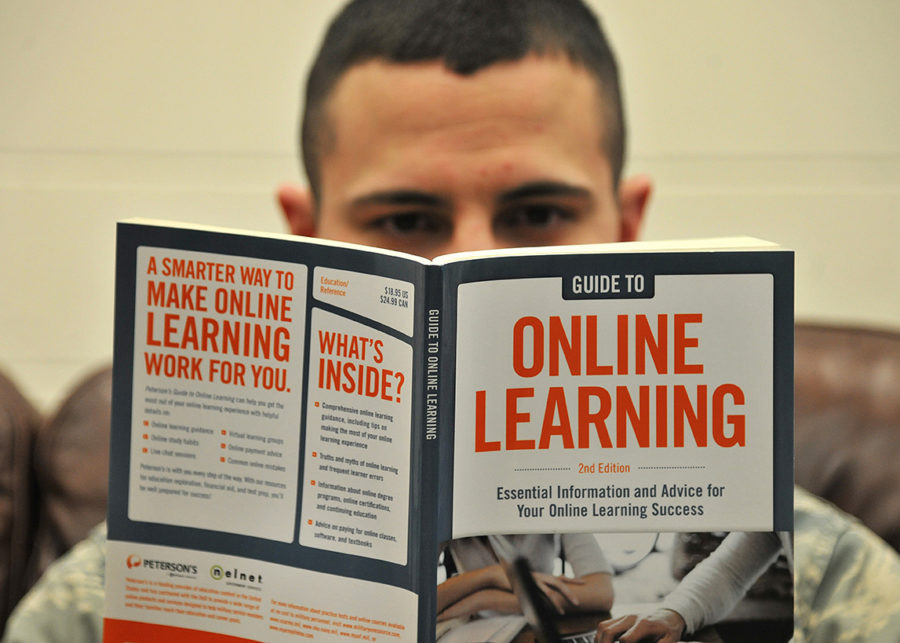Online degree, worth it or not?!
Photo by Senior Airman Xavier Navarro
Senior Airman Kyle Struecker, 69th Maintenance Squadron crew chief, reads a book on online learning at the Education Center on Grand Forks Air Force Base, N.D., March 31, 2015. Stuecker has taken two college level examination program exams and has two more classes left before starting his clincals to receive an associate’s degree in applied science radiologic technology. (U.S. Air Force photo by Senior Airman Xavier Navarro/released)
So we’re all here in a traditional college setting. Where of course there are some classes offered online, but predominantly our education is provided by an instructor whom we can have some interaction with; most importantly raise our hands to and ask questions.
So could you imagine getting an entire master’s or even bachelor’s degree online? I can say that’s definitely not something I’d pursue. In some respect I question the credibility of an online degree, and worry that it won’t be looked at the same in a corporate setting. Nevertheless, obtaining an online degree has been, and continues to be, done. So is an online degree worth it or not?
According to a 2014 research report, the millennials – those born after 1980 – are the best-educated generation in the history of the United States. More than one-third have bachelor’s degrees, compared to one in four of their parents and grandparents.
Wow! The statistics are a bit surprising, seeing that there was a considerable increase in the cost of education during that period. According to the National Center for Education, “A graduate in 1979 incurred less than $10,000 in education costs, including room and board.” In retrospect, according to COLLEGEdata, “A 2013 graduate spent almost $120,000 for the same degree and owed more than $33,000 in school debt as of graduation.”
In order to provide a more feasible solution to obtaining higher education, colleges and universities have turned to technology for the answer. Many now offer online classes that include, but are not limited to, bachelor’s and even master’s degrees. The dark side of online degrees is that the desire for college degrees combined with the high cost of education led to an explosion of unaccredited “diploma mills,” where anyone who was willing to pay the fee was given a diploma.
An accreditation is obtained by the process in which an independent, publicly recognized third-party organization validates or verifies that the college met specific standards, and followed and integrated a degree or certificate program that exemplifies competency. It is a quality assurance measure intended to maintain the integrity of an institution’s instruction, and mastery of the material by the student.
At this point in studies it is not apparent that all these so- named “institutions” have met the expectation of an accredited resource, which personally steers me away from wanting to obtain an online degree.
It’s evident that the
perception of an online degree varies. Some question whether or not an online degree has less value than a traditional degree. While online courses surely have their advantages and disadvantages as compared to their traditional counterparts, employers, HR recruiters and résumé screeners are often concerned about the reputation and quality of the education that has been provided by these institutions.
Employers generally perceive that an education that includes classroom instruction is more credible than an online education. Their attitude about online education is considerably more positive if the employer has had experience with online education.
Another study conducted in 2013 confirmed that 56 percent of employers continue to value a traditional classroom education over online courses.
This indicates that they would prefer a candidate with a traditional degree from an average school over an applicant with an online degree from a top university. In further discovery it appears that around 61 percent of community college students agree that online courses take an extreme amount of discipline.
Of those students, 40 percent believe that students learn less, and many of the students taking online classes wish they had taken fewer.
The conflict in students’ minds reflects many employer attitudes, although it is uncertain which group influences the other.
The lower price point and the ideal of paying back less and saving a substantial amount of money are always factors and great benefits. In any event, the various reports indicate that online education continues to have a questionable image in the minds of many employers and students.
It’s apparent that students pursue online degrees for a variety of reasons. Many adults work full-time jobs to support families, eliminating their ability to attend school full time. Others have all-consuming parental duties.
Some students are located in areas where classroom instruction is not easily accessible, while others cannot assume the costs of attending a traditional brick-and-mortar college. Generally, cost of a traditional degree – with tuition, books, fees, possibly room and board – is lower for an online education versus a traditional full-time college.
Well that all sounds great, although my findings indicate there are some universities that charge more for online courses since they frequently cost more to develop and maintain. In addition, an online student incurs costs for a computer, internet fees and software if applicable. These are costs you may not incur with a traditional classroom setting.
In other words, tuition and fees are likely to be the same whether attending a school remotely or onsite, although there may be savings for an online student because of the elimination of boarding and some other expenses.
On the positive side, many employers reimburse staffers for all or a portion of college costs without distinguishing between online or in-person attendance. That is awesome news and definitely something to take in to consideration.
It seems as though it’s not a matter of an online education being worth it or not, merely a personal decision made to suit your goals and immediate needs.
The greatest thing is that our fast-paced ever-growing and changing societies have provided us with a plethora of options and opportunities.
The only wrong decision regarding your education would be not to make one!







